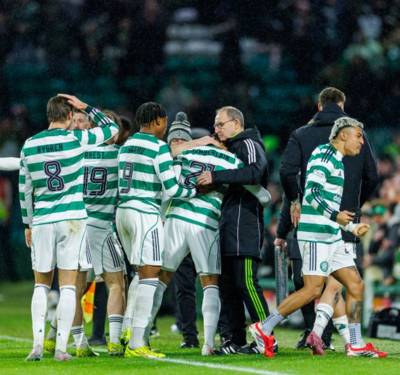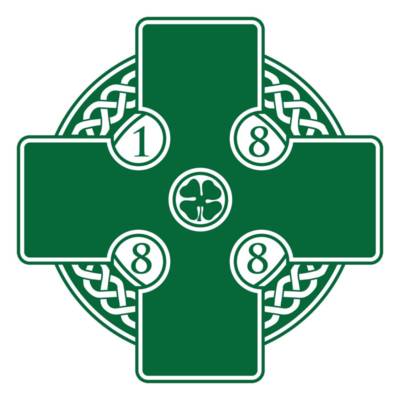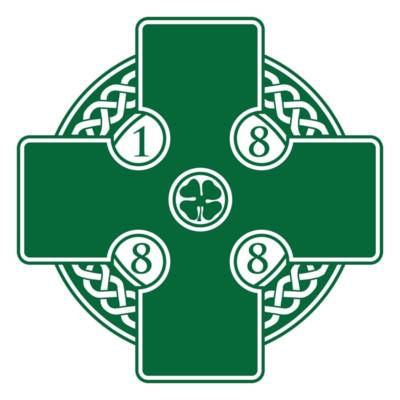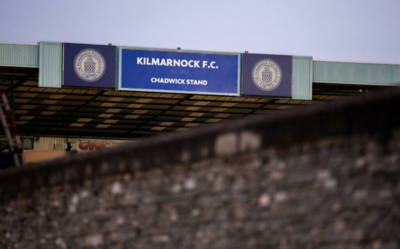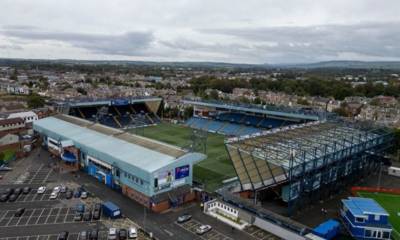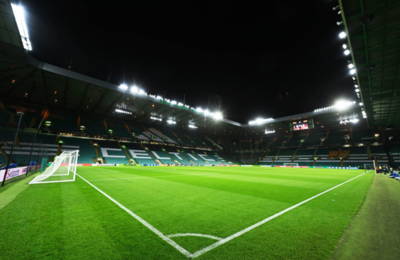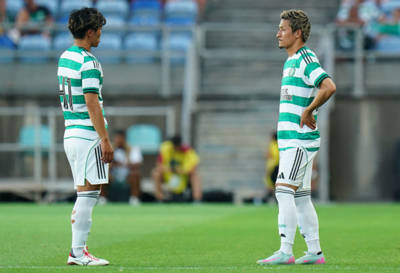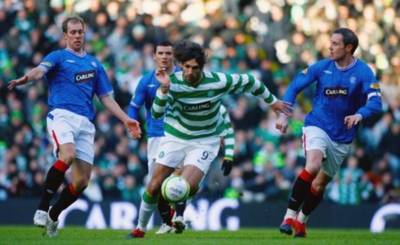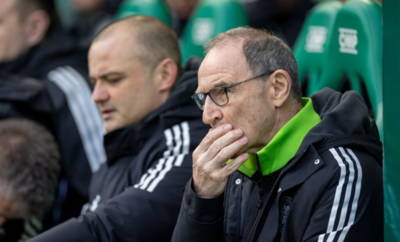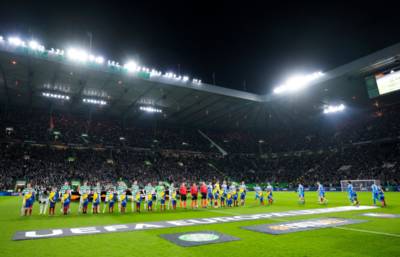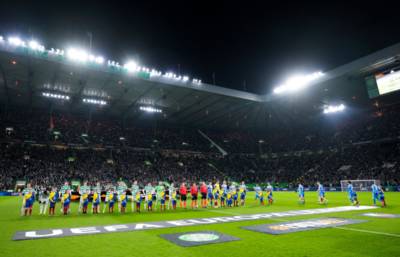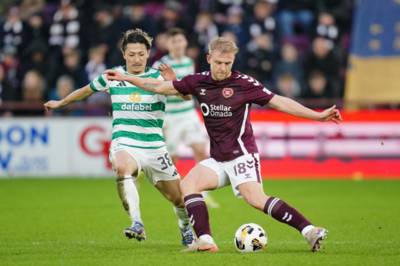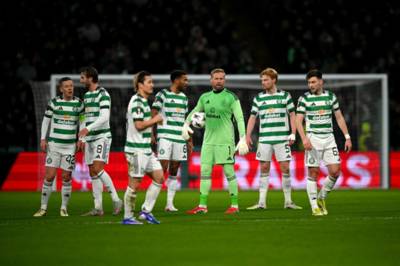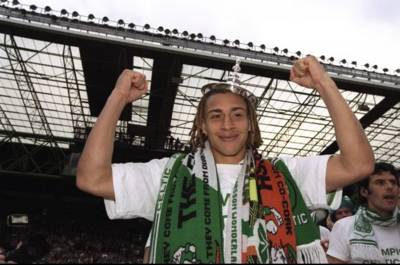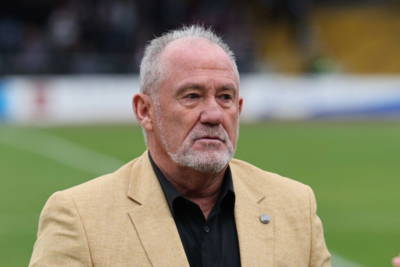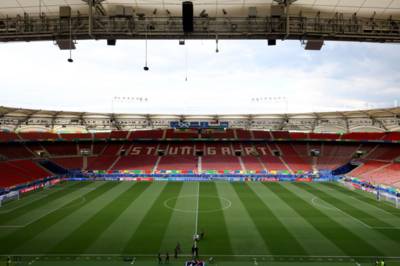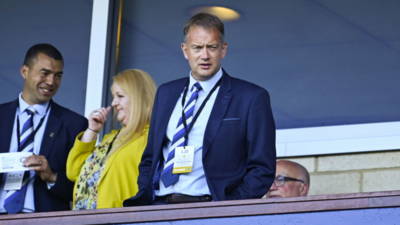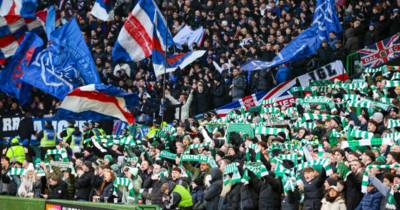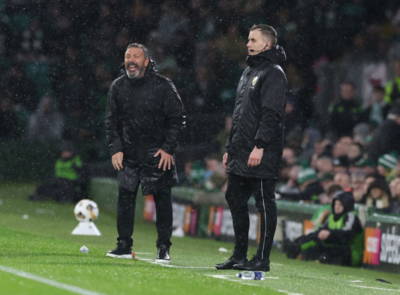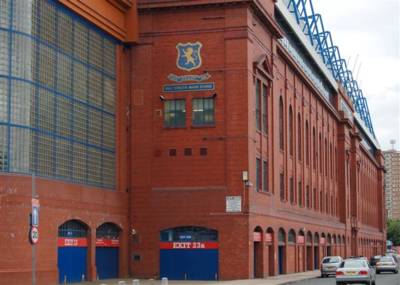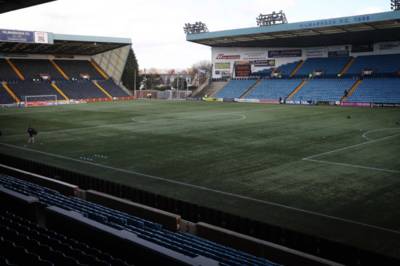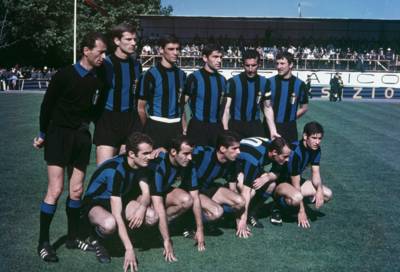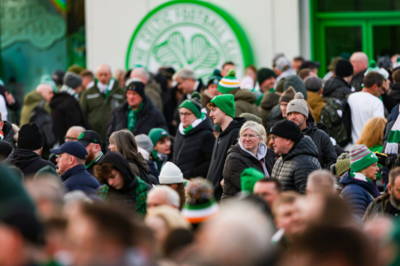There will be a commemoration held this weekend by The Celtic Graves Society in honour of Celtic legend Jimmy McStay in his hometown of Larkhall. The event goes ahead this Saturday, November 16 at 2pm in Larkhall Cemetery, 36 Station Road, Larkhall, ML9 2DB. Among those in attendance will be Jimmy McStay (Jimmy’s grandson), former player and relative Willie McStay, Tony Hamilton Celtic FC Foundation CEO and Brendan Sweeney of the Celtic Graves Society. Members of local Celtic Supporters’ Clubs will also be in attendance and the grave will also be blessed at the commemoration. A new headstone has been erected at the grave in full collaboration with the McStay family. In line with all of their other marvellous work in restoring the graves of other club legends, this is the start of a long held aim by The Celtic Graves Society, to ensure that all Celtic captains’ graves are commemorated in an appropriate way, in full collaboration with the families and in recognition of their status as captains of the club. Not only is Jimmy a member of the McStay family legacy that has graced the club’s history, he is only one of four Celts to have played, captained and managed Celtic along with Jock Stein, Billy McNeill and Neil Lennon. Sean Fallon and Kenny Dalglish have honourable mentions too for the periods when they were interim managers.Here is a short look at Jimmy McStay’s career… PRELUDE TO PARADISE While Willie McStay joined Celtic in 1912 and was loaned out to Ayr United before becoming a regular in the side after making his debut in 1916, his brother, Jimmy McStay was a bit of a late starter as far as Celtic were concerned. Both were defenders and both had come from their local Larkhall Thistle side but the only other side Jimmy played for was for his army unit during the First World War (his brother did likewise) and he signed for Celtic on November 13, 1920 at the age of 25, although it would be two years before he made his first-team debut. DEBUT BHOY It was on November 4, 1922, that two McStays appeared in a Celtic team for the first time ever but it certainly wouldn’t be the last in the club’s history. Jimmy joined his older brother, Willie, for a league game against Clyde at Shawfield. A Jean McFarlane goal sealed the points in a 1-0 win for the Hoops played in front of a crowd of 13,000. The younger McStay kept his place for the rest of the season aside from just four games and he made 30 appearances in all, 24 in the league and six in the Scottish Cup. It was the cup that proved fruitful that season and both McStays played in the 1-0 final win over Hibernian at Hampden, giving Jimmy his first medal as a Celtic player. HIGHLIGHTS The Scottish Cup win in 1923 in a Battle of the Greens with Hibernian was the first of five such successes for Jimmy McStay. He also picked up a winner’s medal in 1925, 1927, 1931 and 1933. The second of those successes was the famous ‘Patsy Gallacher final’ of 1925, when the Irishman waltzed through the Dundee defence before somersaulting into the net with the ball between his legs to equalise for the Hoops, Jimmy McGrory provided the winner that day. The first three Scottish Cup triumphs featured both McStay brothers in the winning side. Jimmy also played in all 38 games of the 1925/26 championship-winning campaign (brother Willie played in 35 of the games and both scored six goals). The Hoops finished on 58 points that term with both Airdrie and Hearts chasing on 50. It would be his only championship success during his time with the club, and given that, in the first 20 years of the 20th century, Celtic had won 11 titles, it was a poor return for player and for club. LOW POINTS Jimmy McStay almost didn’t make the grade at Celtic as the board, influenced by the reaction of supporters it was rumoured, were for dropping the player, but manager Willie Maley insisted that the defender had what it takes to be a success and the manager stuck with his gut feeling and the player remained. In time Jimmy McStay did win over the fans and the board but as far as lows go in football, there were Scottish Cup final defeats in 1926 and 1928, the first of those, a 2-0 defeat to St Mirren halted winning the double. And in 1931, the Hoops lost out in the league to Rangers by only two points. Again this prevented the Celts celebrating the double. However, like all the Celts who played in the early 1930s, any football disappointment was overshadowed by the terrible events of September 5, 1931. On that day at Ibrox, Celtic’s young goalkeeper, John Thomson, sustained a fatal head injury at the age of just 22. Jimmy McStay captained the Celtic side that day and was first on the scene as Thomson lay prone on the ground. He would also walk ahead of the funeral cortege as Celtic’s Prince of Goalkeepers was buried in Cardenden, Fife, a heavy burden for any man but one which Jimmy McStay shouldered as captain of the side. He would also have to console and consolidate the Celtic players just two years later when Peter Scarff died at the age of 26 from tuberculosis. BOWING OUT Jimmy McStay’s last game for Celtic came in the final league encounter of season 1933/34 in a visit to Paisley to take on St Mirren on April 28. He only missed five games that season and his final outing resulted in a 2-1 win over the Buddies, thanks to goals from Frank O’Donnell and Chic Geatons. Indeed, that was the only season since 1924/25 when Jimmy McGrory wasn’t Celtic’s top goalscorer, though normal service was resumed in the following three seasons. Jimmy McStay did have one more outing following that in the end-of-season Charity Cup in the semi-final at Hampden. Frank O’Donnell scored a hat-trick and Johnny Crum also got on the scoresheet in a 4-1 win over Third Lanark in front of 6,000 fans. Just over 12 months earlier he had played at the same venue in front of 102,339 supporters in the 1-0 Scottish Cup final win over Motherwell, which was also his last honour for Celtic. POST-PARADISE Jimmy McStay moved to Hamilton Accies on September 28, 1934 and returned to Hampden at the end of that season to take on Rangers in the Scottish Cup final, narrowly losing the final 2-1. Next up was a trip across the Irish Sea as player, coach and manager with Brideville in Dublin in 1937 before taking up the post as manager of Alloa in 1938. He was there for two years before the board saw him as the ideal replacement for Willie Maley and on February 15, 1940, he became only the second ever Celtic manager. He would later move back to Hamilton as their manager, before coming home again in 1951 as Celtic chief scout. KEEPING IT IN THE FAMILY Willie McStay became Celtic captain in 1923, a role he held with honour until 1929 and it was then that Willie Maley decided that Jimmy McStay was the man to take over from his brother. Jimmy was skipper from 1929 until 1934 when he left the club. He led the team to two Scottish Cup triumphs in 1931 and ’33. The McStay captaincy didn’t stop with Jimmy McStay, though, as his great-nephew, Paul McStay, wore the armband between 1990 and ’97, meaning that McStays have captained Celtic for a total of no fewer than 18 seasons. The fact that the McStays – Willie, Jimmy and Paul – have all made it into this exclusive group to have made at least 300 starts for Celtic is a further sign of their contribution to the club down through the years. With no Celtic game this Saturday, November 16, if you can, get along and join in the commemoration of Jimmy McStay at 2pm in Larkhall Cemetery, 36 Station Road, Larkhall, ML9 2DB.
Celtic Graves Society commemorate club legend Jimmy McStay
Celtic FC · Nov 12, 2024
Celtic Graves Society commemorate club legend Jimmy McStay
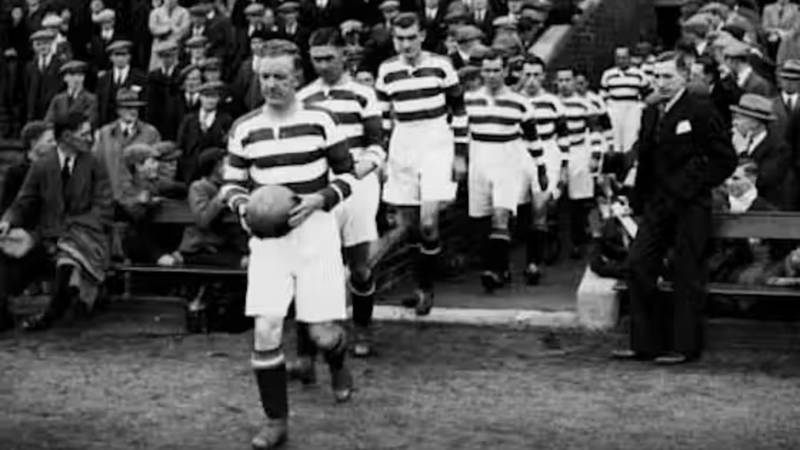
Celtic Graves Society commemorate club legend Jimmy McStay
Read Next: Returning to the past could allow Celtic to build for the future


